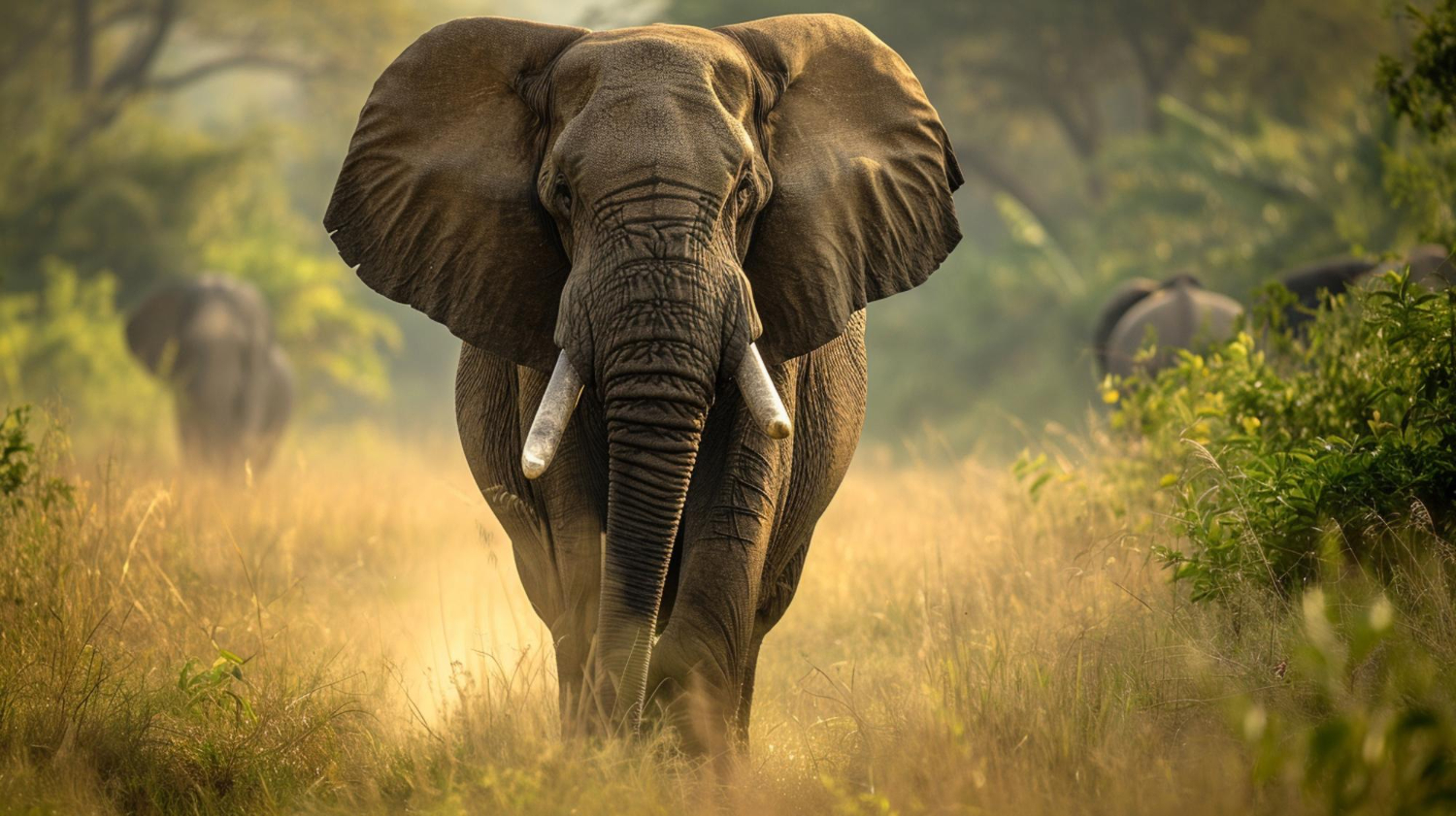Recently, through the use of artificial intelligence (AI) tools, scientists have made a remarkable discovery about elephants. It turns out that they have unique “names” that they use to address each other. This fascinating finding places they among a select group of animals that give each other names, similar to humans. What’s particularly intriguing is that, unlike some other animals, elephants don’t imitate the calls of the individual they’re addressing when using these unique names.
The study, titled ‘African elephants address one another with individually specific name-like calls’, was published in the renowned journal Nature on June 10. The research was led by a group of esteemed scientists including Michael Pardo, Kurt Fristrup, and George Wittemyer from Colorado State University (US), as well as David Lolchuragi and Iain Douglas-Hamilton from Save The Elephants (Kenya). Additionally, the study involved the expertise of Joyce Poole and Petter Granl from ElephantVoices (Norway) and Cynthia Moss from the Amboseli Elephant Research Project (Kenya). This groundbreaking research has deepened our understanding of elephant communication and social behaviors.
Read More: What is Artificial Intelligence (AI)?
Primary vocalization
In an interview with Nature, Pardo emphasized the high level of sophistication in the lives of animals that often goes unnoticed by humans. He suggested that the communication among elephants may possess an even greater complexity than previously assumed.
Research has found that contrary to common perception, the primary vocalization of elephants is the rumble, a low-pitched, thrumming sound, rather than the trumpet, which is considered an emotional outburst. According to Pardo, a researcher cited in The New York Times, these rumbles carry significant meaning and are used in various social contexts. Scientists sought to determine if elephants assign names to each other by analyzing these rumbles.
Read More: Narendra Modi Foreign Policy
Over the span of 36 years, from 1986 to 2022, researchers carefully documented the rumbles of wild female African savannah elephants and their offspring in Amboseli National Park in southern Kenya, as well as in the Samburu and Buffalo Springs National Reserves in the country’s north.
Researchers examined 469 elephant rumbles
In a fascinating study, researchers examined 469 umbles to determine whether these vocalizations contained information intended only for specific elephants. To do this, the researchers utilized an AI model to analyze the sound properties of the rumbles, as it can be challenging for human ears to distinguish between them.
Read More: Biden’s Immigration Policy: Addressing Surges at US-Mexico Border
The AI model aimed to predict the intended recipient of each call based solely on its sound properties. Lead researcher Pardo explained that the ultimate goal was to ascertain whether the calls contained identifiable information about the intended receiver, essentially functioning as a type of “name” for the elephant.
Remarkably, the AI model was able to identify the targeted elephant in 27.5% of the cases, a significantly higher success rate compared to when it was fed random audio recordings of the elephants. This compelling result suggested that certain rumbles indeed contained information uniquely addressing individual elephants.
Ability to differentiate and respond to calls
To supplement their findings, the researchers played the recorded rumbles to 17 elephants and observed their reactions. Strikingly, they displayed stronger responses when they heard their “name” compared to rumbles directed at other elephants. This provided further evidence that the rumbles carried information intended specifically for individual elephants.
Read More: H5N1 Bird Flu Virus Threat: Urgency and Challenges
In an interview with The New York Times, Pardo expressed his immense excitement about the playback results, emphasizing that the strongest evidence pointed to elephants’ ability to differentiate and respond to calls intended for them. Unlike animals such as parrots and dolphins, there was no indication that they imitate the calls of the receiver. The researchers, nonetheless, remain uncertain regarding the specific location of elephant names within their rumbling communication and whether they assign names to objects other than individuals.
Discover more from The Ink Post
Subscribe to get the latest posts sent to your email.





